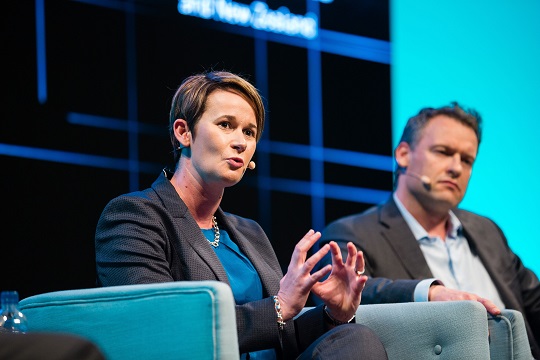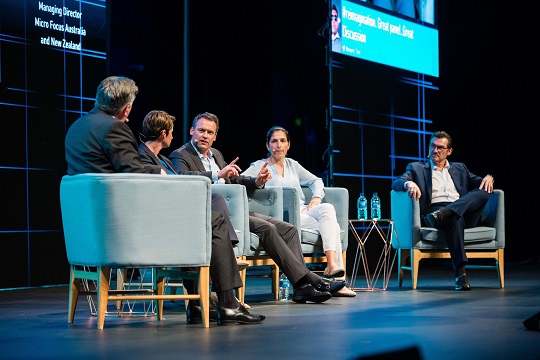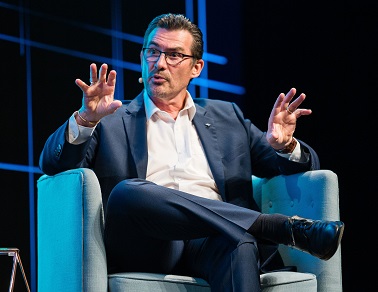Australian companies should be striving to do more than just the bare legal minimum when protecting and using their customers’ data.
Speaking at the recent ACS Reimagination 2018 thought leaders' summit in Melbourne, TabCorp chief information officer Mandy Ross said the new General Data Protection Regulation in the European Union should inspire local companies to do better with data, even if it doesn’t apply to them directly.
“As Australian organisations we should be turning our minds internationally and making sure we’re staying ahead of the curve,” Ross said. “In terms of privacy, we should be aspiring to do much more than just what’s regulated in Australia.”
Many Australian organisations are “only scratching the surface on what’s possible” with big data, Ross said.

Tabcorp's CIO Mandy Ross (L) and AGL's CIO Simon Moorefield. Photo: Kat Stanley Photography
“Without a doubt understanding more about customers, and in our case what sporting team they follow, what horse they like to bet on, what their favourite numbers are – there’s an opportunity to provide a much more personalised experience there,” she said. “It’s really more about what you do with it and what insights you’re able to glean that are valuable for your business.”
But this comes with great responsibility, she said.
“When you are a consumer business, trust is so important,” Ross said. “As a business you have to be asking yourselves questions around ‘we may be able to do this as an organisation, but should we?’”
“With a customer-led lens, does this align with whom we aspire to be as an organisation?”

L to R: ACS CEO Andrew Johnson, Tabcorp's CIO Mandy Ross, AGL's CIO Simon Moorefield, Grove Ventures Partner Sigalit Klimovsky, Micro Focus Australia and New Zealand MD Peter Fuller. Photo: Kat Stanley Photography
It’s important that tech companies think carefully about how and why they are collecting and using this data, rather than just trying to get as much of it as possible, she said.
“Data is a massive opportunity – it’s fuelling the economy today and will continue to fuel it into the future, but I don’t think that volume wins,” she said.
“It’s about what you do with that and what actions you take based on the data you have within an organisation.
Also on the same panel, Micro Focus Australia and New Zealand managing director Peter Fuller contested the widely held belief that legacy technology systems need to be replaced as soon as possible, instead pointing towards a culture of adapting and moulding these technologies to suit a company’s needs.
“We tell our customers to embrace the legacy – legacy is fantastic,” Fuller said. “The hundreds of millions of dollars and man hours that have gone into developing the legacy shouldn’t go to waste.”

Micro Focus Australia and New Zealand MD Peter Fuller. Photo: Kat Stanley Photography
He used the analogy of building a city to illustrate why you shouldn’t rush to get rid of legacy systems.
“When you build Melbourne from scratch, you’ve laid out the streets, put in the water reticulation, the traffic lights and the roads, you can’t come back and call it legacy and then try to change it all,” Fuller said. “You can embrace it and modernise it and adapt it to integrate with new technologies.”
This is a key focus of what Micro Focus aims to deliver for its customers, he said.
“That’s what our key focus is – helping our customers bridge between the old and the new to continue to leverage the investments they have in their legacy systems, to modernise them,” Fuller said.
“To integrate modern technology while still maintaining the significant investments they have in their back-office technology.”




.jpg)





